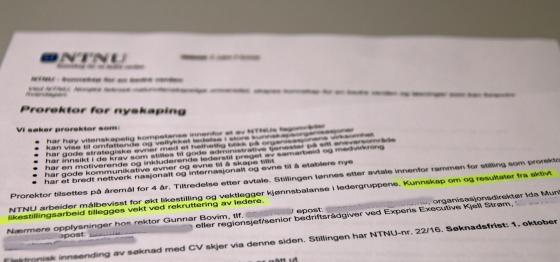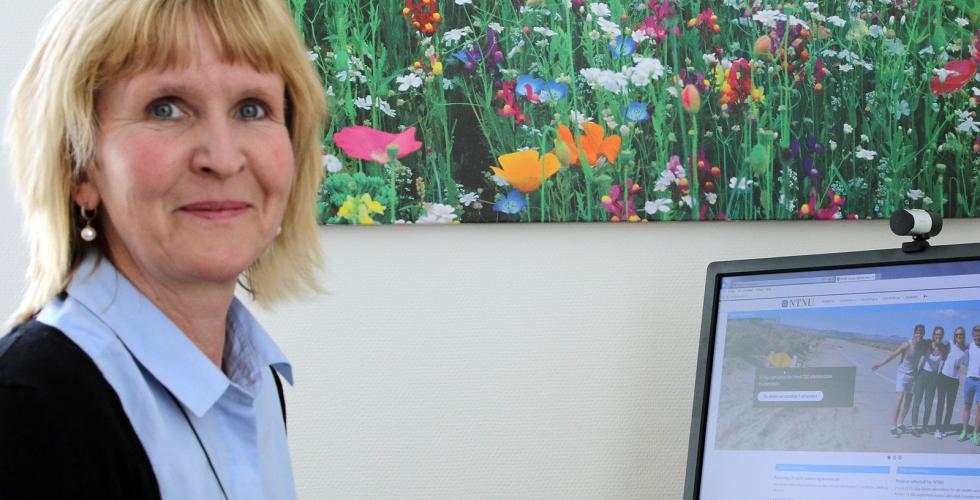More want gender-competent managers
The University of Agder is now requiring its new upper-level managers to have competency in gender equality, based on a model from NTNU – and other institutions are considering following suit.
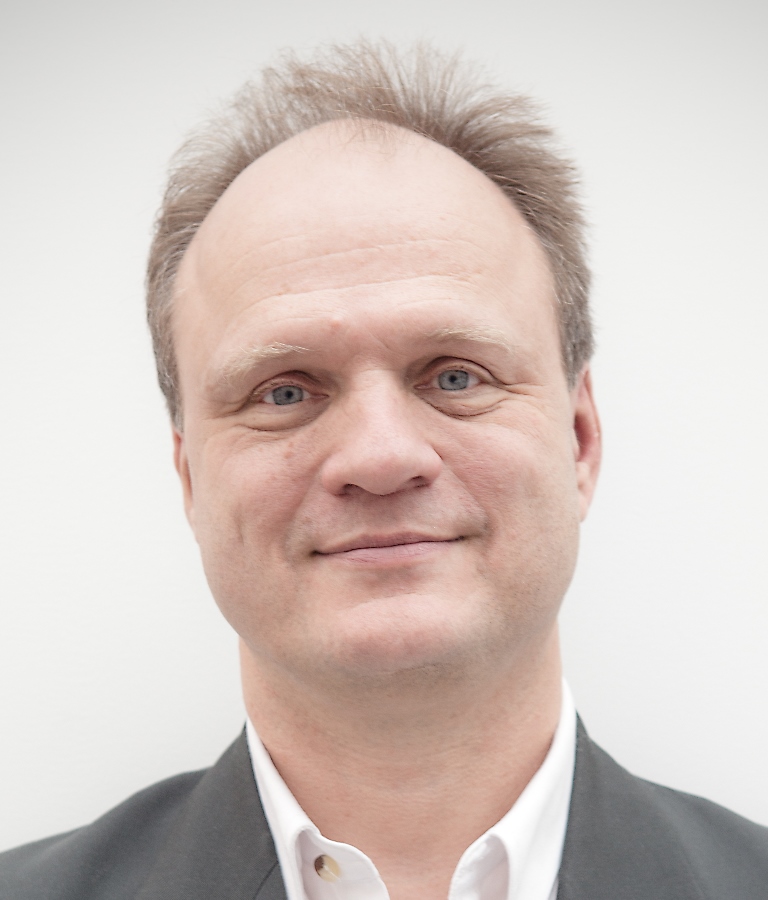
In autumn 2016, Kifinfo published an article about how NTNU’s job announcement for Pro-Rector of Innovation included a new requirement that candidates must demonstrate knowledge about and results from gender equality work.
The Norwegian University of Science and Technology (NTNU) also confirmed that this same requirement will also be applied to all pro-rector and dean positions that are filled in the future.
Ensuring that an institution’s management has expertise in gender equality is often cited as a crucial measure for achieving gender balance in academia. Ingrid Guldvik, Deputy Chair of the KIF Committee, praised NTNU’s measure last autumn, and thought it was exemplary:
“NTNU has high status in Norway, and can therefore serve as an important role model,” she said to Kifinfo.
Have other educational institutions in Norway followed NTNU’s example – or do they plan to do so? We asked a number of institutions if they will include the requirement for competency in gender equality when recruiting new managers.
University of Agder: New competency requirement
“Yes, we are now requiring that upper-level managers have experience with gender equality efforts. We recently included this as a requirement in our last job announcement for a dean position at the Faculty of Humanities and Education,” says Frank Reichert, Rector of the University of Agder (UiA).
“How is the requirement worded, and how will you emphasize it in the recruitment process?”
“In the job announcement for the dean position, we have written: ‘experience with gender equality efforts is desired’, and we will explore this further during the interview process,” explains Reichert.
“We are interested in finding out whether the candidate has documented experience with gender equality efforts, and we will ask how the candidate envisions carrying out active gender equality measures.”
Reichert explains that when the evaluation committee in a recruitment process forwards its nomination for the top candidate to UiA’s board, it must state whether this competency requirement has been met. He also says they have received many applications from candidates with concrete experience from gender equality work.
“How else do you work to improve the gender balance at UiA?”
“We have several departments at UiA with less than 20 percent female professors. These departments must contact the BALANSE project and use a search committee before they begin a new recruitment process,” says Reichert.
“We are also very concerned that the evaluation committees are gender balanced. If they aren’t, we work with the gender equality adviser to appoint an observer from the underrepresented gender to sit on the committee.”
University College of Southeast Norway: “We take the challenge seriously”
Elisabeth Borhaug, Director of Personnel and Organization at the University College of Southeast Norway (HSN), says that they do not plan to include a similar requirement in their job announcements at this time.
“It can be difficult to document results from gender equality work because it is often a result of long-term efforts that include both cultural and structural barriers and the attitudes of individuals and society in general,” says Borhaug.
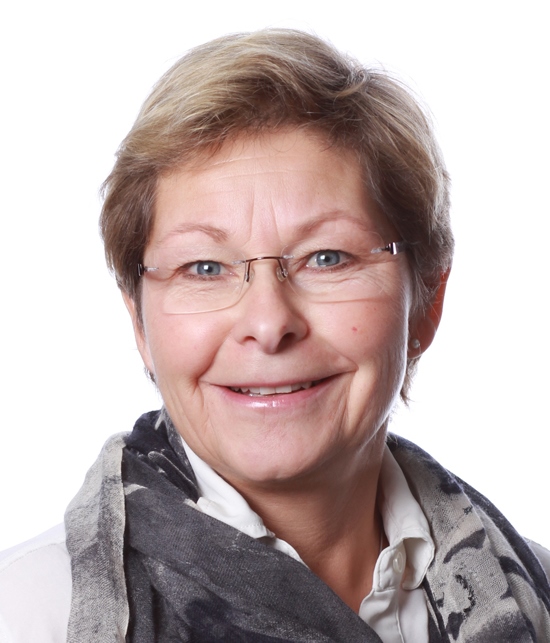
“But this doesn’t mean that we don’t focus on gender equality efforts, and we work systematically to find good measures to include in action plans with regard to both gender equality and ethnic diversity,” she says.
Borhaug explains that the leadership also devotes a great deal of time to diversity issues:
“We work simultaneously with both gender balance and ethnic diversity at HSN, and we believe that these two aspects are equally important.”
HSN is one of many institutions that assumed its current structure on 1 January 2016, when Buskerud and Vestfold University College was merged with Telemark University College. The new university college has eight campuses across three counties in eastern Norway.
“As of today, your top-level management group consists of eleven men and two women. What do you think about that?”
“It’s correct that the management group which was established after the merger is very male dominated, so we can safely say that we have a challenge – and we take it seriously,” says Borhaug.
HSN’s chairman of the board, Rune Nilsen, has expressed concern about the percentage of women in the institution’s management, and he told Khrono.no in May last year that they will follow up on leadership development and mentoring, in part to improve the gender balance.
This is confirmed by Borhaug:
“A male-dominated management group doesn’t necessarily mean that we don’t take gender equality perspectives into account. We are concerned about actively seeking out younger, high-quality candidates for management positions, and we look for and encourage women and minorities to choose management as a career path. We are continually discussing various recruitment measures within the institution,” she says.
She points out that this also applies to diversity and gender equality in the academic career cycle, not only within management. HSN is planning to draw up its first action plan for gender equality and diversity after the merger.
“These two aspects are interconnected, and we set high academic requirements for our managers – for example, a person must be at least an associate professor to qualify for a senior-level position at the faculty level. So it’s clear that by putting more focus on gender balance among researchers, more women can become promising candidates for management positions,” says Borhaug.
Western Norway University of Applied Sciences: Will discuss measures
The newest institution created from the merger is the Western Norway University of Applied Sciences (HVL), which was established on 1 January 2017. It became clear in November that Berit Rokne of the Department of Global Public Health and Primary Care at the University of Bergen would become the newly merged institution’s first rector – and she can confirm that NTNU’s model is one of the measures they will discuss:
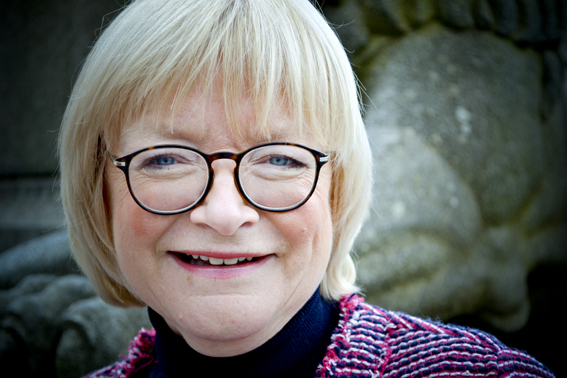
“The plan for the new university college proposes establishing a separate committee at the institutional level to work with gender equality and ethnic diversity, and in that regard it will be interesting to discuss the measured used by NTNU,” she says.
HVL is comprised of the previous Bergen University College, Sogn og Fjordane University College and Stord/Haugesund University College, and has become an institution for professional studies with five campuses and about 16 000 students.
“The new university college aims to promote gender equality and diversity efforts, so awareness of these issues among our managers is absolutely necessary,” emphasizes Rokne.
Norwegian Police University College: “Exciting measure”
Another institution thinking about following NTNU’s example is the Norwegian Police University College in Oslo: They may include a statement in future job announcements for management positions that competency in both gender equality and diversity is desired, according to Eli Vogel-Hovde, Head of the Department of Strategy and Management.
“NTNU’s measure is exciting, and it will be natural to consider adopting this measure when we prepare next year’s action plan for gender equality in management. But it’s too early to know what we will end up deciding,” she says.
“What does a requirement like this imply – how will you word this requirement in the job announcement?”
“It’s a little too early to say anything definitive now. We would probably reword the job announcement slightly and not use NTNU’s requirement regarding ‘results from active equality efforts’, but again – it’s too early to know anything at this point in time,” says Vogel-Hovde.
As of today, the top-level management group for the Norwegian Police University College is comprised of six women and five men, and the institution’s highest position is held by a woman, Rector Nina Skarpenes. Vogel-Hovde says that they are also concerned about having a good percentage of women in their bachelor’s degree programme.
“Admissions to the bachelor’s programme for 2016 comprised almost 42 percent women. It’s important to have a substantial share of women in police studies so that we have a basis for recruiting female managers to the police in the future,” she emphasizes.
Translated by Connie Stultz.
When NTNU announced the position of Pro-Rector for Innovation last autumn, many noticed the following wording from the text: “When recruiting managers, weight will be given to the candidates’ knowledge about and results from active gender equality work.”
Job announcement, NTNU: Pro-Rector of Innovation (the application deadline expired on 1 October 2016).
Read more: New demands on managers
We contacted the University of Agder (UiA), the University College of Southeast Norway (HSN), the Western Norway University of Applied Sciences (HVL), the Norwegian Police University College (PHS), the University of Oslo (UiO) and the University of Bergen (UiB) to ask whether they require their managers to meet similar requirements regarding knowledge about and results from gender equality work.
Prior to publication of this article, we received a response from all of these institutions except for UiO and UiB.
